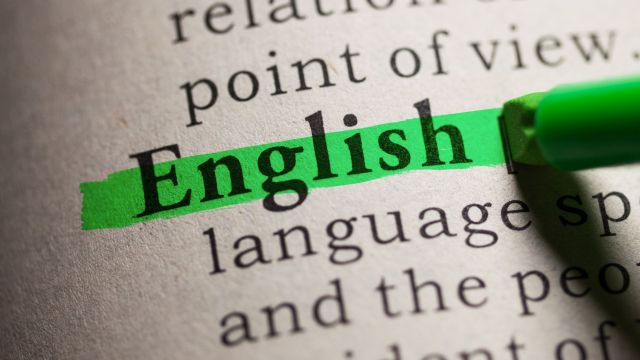
Every year on September 14, India celebrates Hindi Diwas, marking the adoption of Hindi as the official language of the Union under Article 343 of the Constitution. The day is filled with speeches, declarations, and awards meant to honour the language. But for millions of students who have received their education in Hindi, this celebration often feels ironic and hollow. Far from feeling empowered, they find themselves sidelined, facing discrimination simply because they are not proficient in English.
This paradox is not just theoretical — it is deeply personal and lived. I still recall a painful episode from my own academic journey. After passing the written entrance exam for a PhD programme at a reputed university in Uttar Pradesh, I went for the interview, confident and well-prepared. I began presenting my research proposal in Hindi, the language I have been trained in.
But I was immediately interrupted. “You must speak in English,” said the department chair. “Our norms are clear.” I struggled to switch languages, and my thoughts, so coherent in Hindi, fell apart. I was not selected. This isn’t rare. A friend of mine, enrolled in an integrated PhD programme in Delhi, completed his MPhil dissertation in Hindi. But when he sought to write his doctoral thesis in the same language, he was told bluntly, “Research in the social sciences is not done in Hindi.” This was not merely a bureaucratic rule — it reflected a larger mindset that equates academic legitimacy with English. Implicit in such decisions is a troubling assumption: Serious intellectual work cannot happen in Indian languages. But is language truly a measure of intelligence or scholarly potential?
The colonial legacy
To understand this linguistic hierarchy, one must look at India’s colonial past. For centuries before British rule, Persian held administrative and literary dominance under the Mughals. In 1837, the British replaced Persian with Urdu in the northern provinces. Urdu soon became the language of administration, education, and the legal system. Although both Hindi and Urdu were promoted at lower levels, Urdu maintained its dominance, especially in administrative and legal affairs. This sparked discontent among proponents of Hindi, who saw Urdu as an imposed medium. Their agitation led to the MacDonnell Resolution of 1900, which allowed for the permissive use of Hindi in government functions. Though symbolically significant, it didn’t upend the linguistic hierarchies of the time. These colonial legacies continue to shape language politics in India today. While Hindi is recognised officially, English remains the true gatekeeper, especially in education and employment.
The post-Independence dilemma
After Independence, the Constitution tried to strike a balance between promoting Hindi and accommodating India’s linguistic diversity. Article 343 designated Hindi as the official language, aiming to phase out English within 15 years. However, resistance from southern states and elite sections led to the continued use of English, formalised in the Official Languages Act of 1963. Article 351 urged the Union to develop Hindi to express all facets of Indian culture, but in practice, English retained and even strengthened its hold.
Nowhere is this contradiction clearer than in education. Competitive exams for public sector jobs — including the CDS, NDA, SSC, and banking services — heavily emphasise English. For instance, one-third of the CDS exam is focused solely on English proficiency. Candidates must demonstrate fluency in grammar, vocabulary, and comprehension skills that many Hindi-medium students struggle with, due to years of inadequate English education in government schools. The system thus reinforces privilege: It rewards students from elite, urban, English-medium backgrounds and sidelines the rest. The disparity continues into higher education.
Many universities still discourage or outright prohibit the use of Hindi in research. Policies regarding the language of instruction or thesis submission are often vague, leaving room for faculty discretion and bias. Students who choose to write or speak in Hindi must fight not only for academic recognition but also for their right to express complex ideas in their native language.
A bifurcated education system
Such discrimination leads to a sharply divided education system. On one side are elite private schools and colleges that offer world-class education in English. On the other are government schools and Hindi-medium institutions, which often suffer from poor infrastructure, untrained staff, and minimal English instruction. This linguistic dualism mirrors and reinforces social inequalities. English becomes a marker of class and urban privilege, while Hindi is often associated with rural, lower-class, or “backward” identities. Such associations are not only unjust, they are dangerous. They perpetuate stereotypes, discourage talent, and rob millions of students of their potential. The Indian Constitution envisioned a Republic where every citizen could access state institutions and intellectual spaces irrespective of language. But 75 years later, that dream remains unrealised.
An inclusive India cannot emerge if merit is judged only through the lens of English fluency. Language should be a bridge, not a barrier. It should empower, not exclude. If we are to celebrate Hindi Divas with sincerity, we must first ensure that Hindi-medium students receive equal opportunity in classrooms, universities, and job markets. Until that happens, the pomp and ceremony will ring hollow, and the aspirations of millions will remain tragically unfulfilled.
The writer is a Senior Research Fellow at Jamia Millia Islamia, New Delhi and teaches History as Guest Faculty at Bharati College, University of Delhi